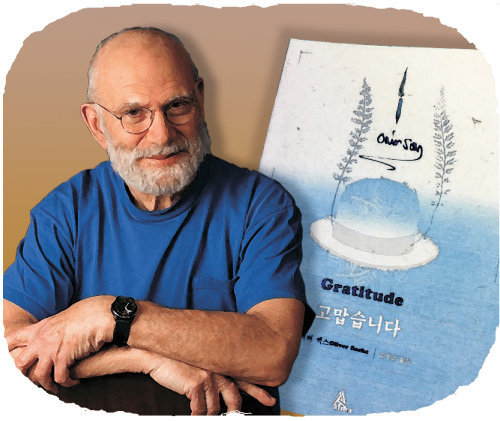Gratitude
Gratitude
Posted September. 07, 2022 08:03,
Updated September. 07, 2022 08:03

Wounds from loved ones run deep and longer. For successful doctor and writer Oliver Sax, the wounds lasted throughout his lifetime.
When he was eighteen, his father asked him if he was interested in men. It was a casual question asked out of curiosity, as the father had never seen his son with a girlfriend. "I am. But it's just a feeling. I didn't do anything. Please don't tell mom," Oliver answered. It was a blow to his father.
His father ignored what he said. On the following day, his mother put on a stern face and said, "You are disgusting. You shouldn't have been born." She refused to speak to him for several days and did not mention what he said again. Back in the 1950s in Britain, homosexuality was strictly forbidden. Moreover, his mother was an orthodox Jew. His mother's words made him realize how religion could be so intolerant and cruel and made him feel guilty. The words followed him throughout his life. That is why Oliver, who passed away at the age of 82, had lived single until the age of 75, as he remained ‘married to work.’
His mother, an anatomist and gynecologist and one of Britain's first surgeons, had been a warm and loving person in other ways. Oliver, who was the youngest son, loved her more than anyone. His devotion to her remained the same despite her hurtful words. He felt like the world was falling apart when his mother passed away. He thought that his mother would be regretful inside for saying those things.
He wrote this in his autobiography ‘On the Move’ and his essay ‘Gratitude.’ The trauma was so great that he kept writing about it in his last essay fighting cancer. However, his final emotion was that of gratitude. He was grateful for the world, his patients, friends, readers and perhaps even his mother.





![[천광암 칼럼]장동혁은 대체 왜 이럴까](https://dimg.donga.com/c/138/175/90/1/wps/NEWS/IMAGE/2026/02/22/133399127.1.jpg)

